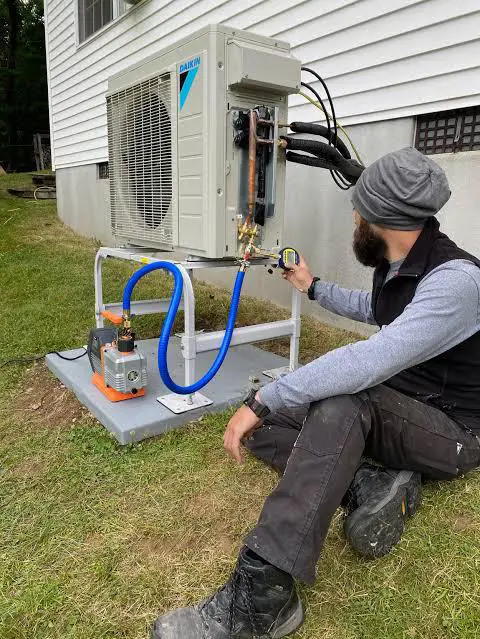A single split heat pump system connects one outdoor unit to one indoor unit, making it a simple, cost-effective way to heat or cool a single room. A multi split heat pump uses one outdoor unit to power several indoor units in different rooms, giving you flexible comfort and independent temperature control throughout your home. Single split systems are ideal for smaller spaces or individual rooms, while multi split systems are perfect for whole homes with limited outdoor space. Both options use energy-efficient heat pump technology for year-round heating and cooling, so you can choose what best fits your needs and budget
FAQ
- Home
- FAQ
Frequently Asked Questions

Yes — but only if your ducted heat pump has a zoning system. A standard ducted heat pump delivers the same temperature throughout all connected rooms. To set different temperatures in different areas, you need a zoned ducted system with motorised dampers and individual controls. Zoning lets you divide your home into separate areas (like bedrooms, living spaces, or offices) and control each one independently, giving you more comfort and better energy efficiency.
A zone control system is an add-on for ducted heat pumps that lets you divide your home into separate “zones” (like bedrooms, living areas, or offices) and control the temperature in each one independently. It works by using motorised dampers inside the ductwork to open or close airflow to different areas. Each zone has its own thermostat or controller, so you can heat or cool only the rooms you’re using, set different temperatures in different spaces, and save energy by not conditioning empty areas. Zone control makes a ducted heat pump more flexible and efficient, giving you personalised comfort throughout your home.
A ventilation system brings fresh air into your home and removes stale, moist, or polluted indoor air. Modern homes are well-insulated and tightly sealed to save energy, but this can trap moisture, odours, and indoor pollutants like dust, allergens, and chemicals. Without proper ventilation, this can lead to stuffy air, mould growth, and poor air quality that affects your comfort and health. A good ventilation system helps control humidity, reduces condensation, protects your home from mould and dampness, and keeps your indoor air fresh and healthy all year round.

